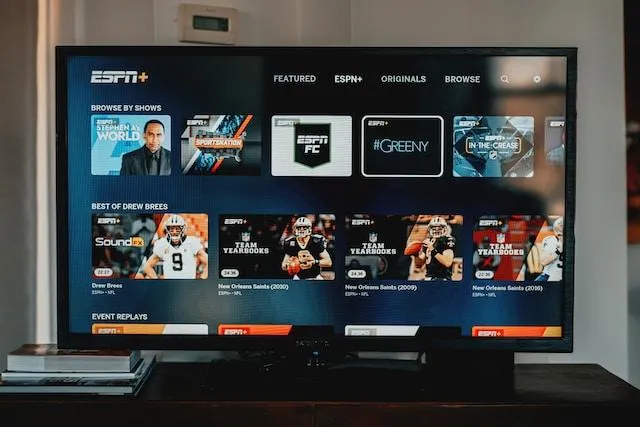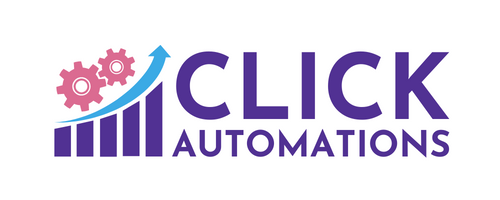BLOG
Where we share modern strategies to attract and retain your ideal clients.

Are TV Streaming Ads Right for Your Business? Comparing Advertising Platforms
In the ever-changing world of digital marketing, businesses are constantly seeking ways to effectively reach their target audience and generate meaningful results. One such advertising avenue that has piqued the interest of marketers is TV streaming ads. With the rapid growth of streaming platforms like Netflix, Hulu, and Amazon Prime, more and more people are cutting the cord on traditional cable, creating a potential goldmine for advertisers.
As a business owner or marketer, you may be wondering if investing in TV streaming ads will yield the desired outcomes or if you are better off sticking with the tried-and-true methods of Google Ads and social media advertising.
In this blog post, we will delve into the realm of TV streaming ads and weigh their pros and cons against the other major advertising platforms. Our goal is to provide you with a clear understanding of the effectiveness of each platform, enabling you to make an informed decision on which is best for your business.
Before diving into the comparison, let's first define TV streaming ads. These are commercials or advertisements that appear during TV shows or movies streamed on platforms such as Hulu, YouTube TV, and Amazon Fire TV.
They can be either linear TV ads, which are broadcast during specific time slots, or on-demand ads, which can be displayed throughout the streaming content based on an individual's viewing habits and preferences. These ads often offer advanced targeting options, as well as interactive features that can engage viewers in unique ways.
Now, let's explore how TV streaming ads stack up against Google Ads and social media advertising. Google Ads, the dominant force in digital advertising, allows businesses to display ads on Google search result pages, YouTube, and Google Display Network websites.
With the vast reach of Google and its incredible targeting tools, businesses can place their ads directly in front of potential customers actively searching for their products or services. Social media advertising, on the other hand, enables marketers to leverage the immense popularity of platforms such as Facebook, Instagram, Twitter, and LinkedIn to target users based on demographic, interests, behaviors, and professional connections.
In order to determine the best advertising platform for your business, we will examine the various factors such as reach, targeting, cost-effectiveness, and more, which play a crucial role in the success of an advertising campaign. Stay tuned for a comprehensive comparison that will enable you to effectively decide if TV streaming ads are the right fit for your marketing objectives.
1. Reach: Evaluating the Audience Size of Each Platform
Television has been the traditional mode of advertising for decades, so it's natural to assume that TV streaming ads would offer a wide audience reach. Although TV streaming has seen rapid growth, with an estimated 78.5% of U.S. households using streaming services in 2021, it still falls short compared to the enormous user base of Google and social media platforms.
Google processes over 3.5 billion searches per day, providing a staggering number of opportunities for businesses to put their ads in front of potential customers. Similarly, social media platforms boast billions of users worldwide, with each platform targeting different demographics, interests, and behaviors.
In terms of reach, Google Ads and social media advertising have a clear advantage over TV streaming ads due to their extensive user base and global coverage. While the audience for TV streaming ads is growing, it remains more limited and segmented in comparison.
2. Targeting: Comparing the Precision and Relevance of Ad Placements
One of the most critical factors in advertising is the ability to reach the right audience. All three platforms offer advanced targeting capabilities, but there are some differences in their approach and precision.
TV streaming ads rely on targeting parameters such as demographics, location, and content preferences derived from a user's streaming history. This allows businesses to serve relevant ads to viewers who are likely to be interested in their products or services. However, the targeting options for TV streaming ads are relatively broad and can lead to less precise ad placements compared to other platforms.
Google Ads provides businesses with highly specific targeting tools, including keywords, demographic information, interests, and browsing behavior. This level of granularity and precision allows advertisers to place their ads in front of individuals who are actively searching for their offerings or have demonstrated an interest in related products or services.
Social media advertising offers robust targeting options, making it easier to reach specific demographics, interests, and behaviors. Each platform has unique targeting capabilities: Facebook and Instagram offer exceptional targeting with their Custom and Lookalike Audiences, while LinkedIn's professional network aids in reaching decision-makers in specific industries. The level of precision in targeting for social media advertising is arguably equal to or even surpasses that of Google Ads.
In terms of targeting, Google Ads and social media advertising outshine TV streaming ads due to their highly precise and sophisticated targeting tools.
3. Cost-Effectiveness: Assessing the ROI for Each Advertising Platform
The advertising budget is often a significant concern for businesses, making cost-effectiveness an essential factor in choosing an advertising platform. TV streaming ads can offer a competitive cost per impression (CPM) rate; however, the minimum spending requirement for many streaming platforms may be more than $20,000 per month, making it less suitable for small businesses or startups.
Google Ads operates on a pay-per-click (PPC) model, meaning advertisers only pay when their ad is clicked by a user. This helps businesses control their budgets and maintain cost-effectiveness. Additionally, smart bidding strategies ensure that businesses get the most value from their advertising budget, as their ads are shown to users who are more likely to convert.
Social media advertising costs vary by platform and ad type, but they generally offer lower minimum spending requirements and flexible bidding options, making them an attractive choice for businesses of all sizes. An effective social media advertising campaign can produce a strong return on investment (ROI), particularly when taking advantage of the platforms' advanced targeting tools and bid optimization strategies.
Overall, Google Ads and social media advertising offer a more cost-effective and budget-friendly approach, whereas the high minimum spending requirement for TV streaming ads can be a barrier for smaller businesses.
4. Engagement and Interactivity: The Power to Connect with an Audience
TV streaming ads offer unique opportunities for engagement, as they can come in various interactive formats, such as overlays, shoppable ads, and interactive video. This can encourage viewers to engage with the ads during streaming sessions, leading to a deeper connection with the brand.
Google Ads and social media advertising also offer interactive ad formats, such as carousel ads, lead generation forms, and video ads. However, the level of engagement may vary depending on the placement and format of the ad. Social media ads placed in users' feeds tend to capture attention and elicit clicks, while Google Display and YouTube ads might struggle to keep up with the engagement generated by TV streaming ads.
In the engagement and interactivity department, TV streaming ads can provide a more immersive experience than their counterparts due to their seamless integration into content and interactive ad formats. On the other hand, the right social media ad can also offer high levels of engagement depending on the chosen format.
Choosing the Right Advertising Platform for Your Business
The effectiveness of TV streaming ads compared to Google Ads and social media advertising hinges on several factors that depend on a business's goals, budget, and target audience. While TV streaming ads offer an engaging and interactive advertising experience, their more limited reach, broader targeting, and higher cost may not be suitable for all businesses.
Confused about whether TV streaming ads are right for your business? Let Click Automations help you compare advertising platforms! Our expert team specializes in advertising online, and we're committed to helping you make the best decision to reach your target audience. Don't miss out on the opportunity to maximize your online advertising efforts - contact us today to learn more about our services and let us help you make informed decisions about your advertising strategy. Trust Click Automations to provide you with comprehensive insights and tailored solutions to help your business succeed.
Easily Find Your Next Client
Your Business Growth Is Just A Click Away
PROBLEMS WE SOLVE
Grow Your Business
Save Support Staff Time
Build Online Presence
Enhance Online Reputation
Scale Marketing & Get More Leads
SOLUTIONS
Get Leads With Paid Ads
Get Found On Google
Appointment Setting
Get More Google Reviews
Facebook Ads
TV Streaming Ads
Google Ads
Google Integration
Google Business Page Optimization
FREE RESOURCES
Custom Ads Audit
Website Audit
CONTACT US





